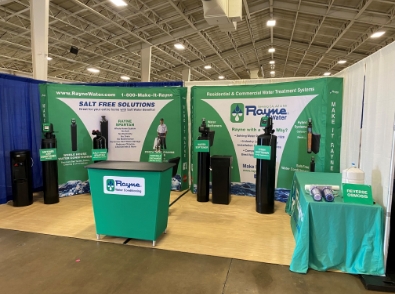Water quality is crucial for maintaining health, making health department water testing essential for every household. Understanding the importance of water testing can help you choose the right water treatment systems, including water softener systems, whole house water filter systems, and reverse osmosis drinking water systems, ensuring safe drinking water for you and your family.
What is Health Department Water Testing?
Health department water testing involves evaluating your water sources for contaminants that can affect health. This often includes checking for bacteria, heavy metals, pesticides, and other harmful substances. Reliable testing ensures that your water meets safety standards established by local and national regulations.
Importance of Water Quality Testing
- Protects Health: Identifies potential health hazards in your drinking water.
- Increases Awareness: Educates homeowners about the quality of their water supply.
- Encourages Remediation: Helps in taking corrective action, such as installing appropriate water treatment systems.
Common Contaminants Detected in Water
- Bacteria: Coliform and E. coli, indicating contamination.
- Heavy Metals: Lead and arsenic, often from plumbing.
- Pesticides: Runoff from agricultural areas that can seep into water supplies.
- Chlorine: Commonly used for disinfection but can affect taste and safety.
Regular testing can prevent these contaminants from affecting your health and well-being.
Water Treatment Solutions for Safe Drinking Water
To ensure the quality of your water, consider investing in effective water treatment systems tailored to your needs.
1. Water Softener Systems
When water tests show hard water, a water softener system can be ideal. These systems reduce mineral buildup, making your water safe and soft.
- Best Water Softener for Hard Water: Evaluating options specific to your water profile.
- Salt vs Salt-Free Water Softener: Learn the differences and choose the best for your household.
2. Whole House Water Filter System
A whole house water filter system ensures purified water for all household uses. This system treats water as it enters your home, providing comprehensive protection against various contaminants.
3. Reverse Osmosis Drinking Water System
The reverse osmosis drinking water system is perfect for those who want the purest drinking water. Removal of impurities offers a refreshing and safe option for daily hydration.
- Explore our reverse osmosis drinking water systems for cleaner water.
4. Bottleless Water Cooler
Opting for a bottleless water cooler can enhance convenience and hygiene in your office or home. It provides an endless supply of filtered water without the hassle of managing bottles.
- Check out our bottleless water cooler solutions for offices.
5. Alkaline Water System
An alkaline water system can improve your water’s pH balance, promoting health benefits proven by various studies.
FAQs About Health Department Water Testing
What should I do if my water tests positive for contaminants?
If your water tests positive, consider installing a water filtration system suitable for the specific contaminants detected. You might need a chlorine removal water filter or an iron filtration system for well water.
How often should I test my water?
It’s recommended to test your water at least once a year, or more frequently if you notice changes in taste, smell, or color.
What is the purpose of portable exchange soft water service?
Portable exchange soft water service provides you with a convenient way to access soft water without needing a permanent system. Ideal for renters or those looking for temporary solutions.
Conclusion
Health department water testing is vital for safeguarding your household’s water supply. With the implementation of advanced water treatment solutions like water softener systems, whole house water filter systems, and reverse osmosis drinking water systems, you can ensure that your water is safe and healthy for use. By staying informed and proactive about testing and treatment, you create a safer environment for you and your family.
For more information on how to install these water filtration systems or to explore our services, visit our site or contact us for professional assistance.


